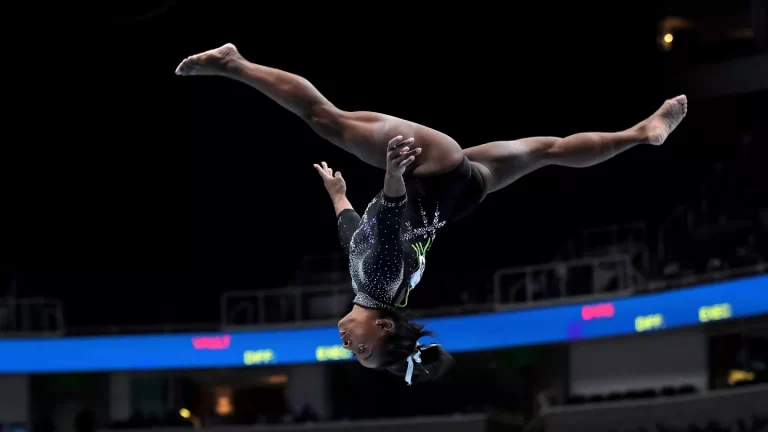“She is a role model for many young women around the world, and now she is back,” said psychologist Robert Andrews, American gymnast Simone Biles’ primary therapist.
10 years after taking charge of Biles’ mental health, Andrews talked with the Spanish media “Relevo,” where he revealed the secrets to treating a world-class athlete.
“I worked on this with Simone from March 2013 to July 2017,” the specialist indicated during the talk.
He explained that he was free to talk about part of the treatment because the gymnast had already done it in her book and biographical film.
The therapist recalled that the hardest battle he and Biles faced was “fighting that old culture of stoicism where it seems like a gymnast is not having fun.”
Another challenge was the insecurity of someone who is considered the best gymnast of all time. “She wasn’t very sure of herself. Simone didn’t really believe in herself. That’s what we started to work on, helping her develop her confidence,” he said.
Andrews explained that to overcome these obstacles they had to “work hard to keep her empowered and so that she could continue to appear that way despite a culture that did not allow it.”
Simone gets the reward
Her psychological hard work paid off in 2013, when she won the first of three consecutive world medals in the individual all-around: Antwerp 2013, Nanning 2014, and Glasgow 2015.
“At the Rio Games, she won four Olympic golds and one bronze medal,”Andrews recalled, although he admitted there could have been five golds if not for an ill-timed slip on the balance beam.
Biles’ success also deeply impacted the specialist’s career: “I had to hire four people in my practice due to the work overload that arrived in 2016.”
One of the keys to success in treating the 2016 Rio de Janeiro Olympic champion was helping her “take her foot off the accelerator or, in other words, not use so much energy,”Andrews explained.
He detailed that a couple of years ago, she was struggling to master a new skill for her routines, so he texted her: “Remember the concept of taking your foot off the gas.”
He highlighted the courage she displayed to pause her career in 2016 to care for her mental health despite the barrage of criticism. “I think the best example is that she retired and not only made that decision for her mental health but also her physical health.”
“What Simone did was defend herself mentally, physically, and emotionally,” said Andrews, and he also highlighted that the athlete’s example“gave many athletes permission to ask for help.”

